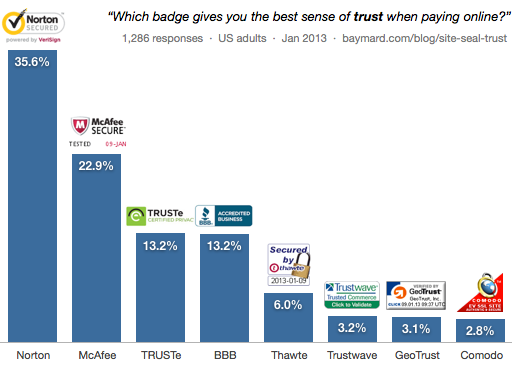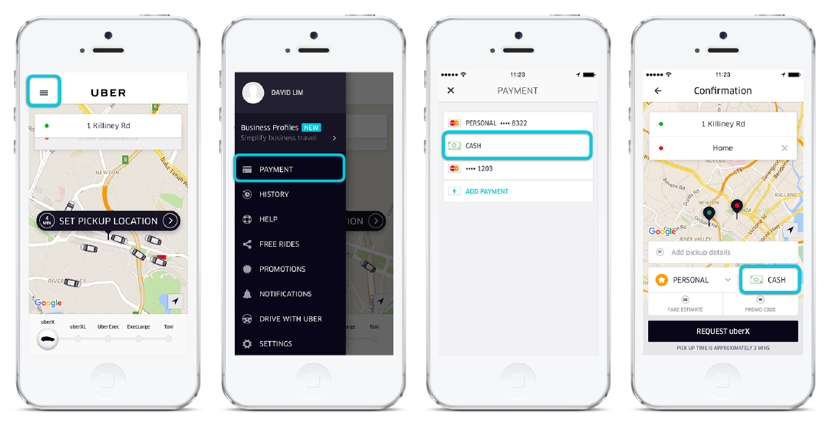Shopping cart abandonment is when a shopper adds some items to a website’s shopping cart but leaves before completing the transaction. This is one of the most crucial problems to avoid for eCommerce store owners.
There are several reasons causing this checkout failure. To avoid the loss of money and customers, you should try to reduce the shopping cart abandonment rate. Unfortunately, it is impossible to alleviate against totally as it might be caused by personal issues. However, it’s not impossible to improve the shopping experience and encourage your customers to purchase.
In this blog, we propose the 7 most effective solutions to help you prevent abandoned shopping carts.
1. Build trust with security badges
Asking a customer to fill in the transaction form means asking for their personal information. This goes beyond basic demographics to also include credit card details and living addresses, which people are often hesitant to pass through. New customers who find you via Google search are a distinctive audience segment that might not trust you from the very beginning to disclose this data.
Therefore, having standardized security badges can instill their confidence and avoid shopping cart abandonment. There are some badges that are trusted by more people than others. But as long as you have at least one, your trustworthiness is absolutely heightened.

Also, remember to put the logos in well-recognized positions so that your customers won’t miss out on them.
2. Offer multiple payment options
Some people prefer credit card payment while others always use apps like PayPal or Apple Pay. People are more likely to complete the transaction if your payment offer matches their purchase behavior.
In this example, by having 3 different payment options, Uber manages to serve the needs of its customers, thereby keeping them engaged with the brand.

3. Be clear about all cost upfront
As a merchant, you know that there are a bunch of different costs apart from the gross price of a product. However, most consumers feel frustrated being bombarded with hidden charges when they’re about to finish transactions.
Therefore, be clear upfront about your delivery options and their costs. Don’t wait until the end of the transaction to showcase this information.
Another factor that every customer cares about the time estimation for a package to arrive. Your customers always expect the product as soon as possible. Therefore, they deserve to know the time frame and if it’s more than 1 or 2 weeks, the reasons behind it.

It’s even better to keep your customers informed about the delivery status so that they know what’s happening with their order. This way enables eCommerce stores to gain trust and effectively avoid shopping cart abandonment.
4. Make it easy to get assistance
Sometimes your customer has a question that is not clearly answered on your website, be it about the product or the transaction process. That’s why you always need staff in charge of customer support.
In fact, more than 30% of customers expect a live chat on a website with 92% of them stated satisfied after using the service. A chatbot would be a solution worth considering, especially for real-time response. The bot is always extraordinarily effective in helping people with recommendations and other simple requests like refund policies and delivery options. However, make sure you have someone available in case your customer asks for human support.

5. Increase your loading speed
In this fast-moving digital world where people’s attention span is relatively slow, speed is really important. It is found that 25% of visitors would abandon a website that takes more than 4 seconds to load. A slow check-out page practically begs impatient customers to take their business elsewhere. So try to optimize your loading speed as soon as possible.
Some technical errors are easier to deal with than others. One way to increase your page load times is to limit the use of ad network trackers, poorly implemented tags, social plugins, and other bloats. For more complicated issues, focus on your technical team and ensure not to disrupt your customer’s shopping experience.
6. Create an exit intent pop-up
An exit intent pop-up is a good way to grab shoppers’ attention before they leave, or actually abandon the transaction.
If you really want to avoid shopping cart abandonment, use this opportunity to stimulate purchasing by offering a promo code or discount program.

This is particularly useful for customers who often go window-shopping or are checking the price on different platforms. By interacting with your customers at the crucial moment, you can motivate hesitant shoppers to move on with the transaction.
7. Abandoned cart remarketing with automation
One of the most successful tactics to avoid shopping cart abandonment is remarketing via automation.
In terms of retargeted marketing, you might consider:
- Retargeted ads on Google and social media
- G-mail sponsored promotion for cross-sell campaigns
- Shopping cart reminder email, etc
Especially with the last solution, you can integrate your store with email automation platforms such as Mailchimp and Klaviyo. Then one or two hours after the customer leaves your site, send them a reminder to continue their transaction. You can also incorporate a promo code and discount program as an incentive.
Final notes
These are the 7 most effective ways to avoid shopping cart abandonment. After all, it’s all about improving the customer experience. Customers who are unfamiliar with your store are more likely to scrutinize every website element before making a purchase decision. Therefore, the fewer fear and errors you have, the more likely people will trust and buy your product. By applying these tactics, you’re reflecting on the whole customer journey on your website and increase revenue by avoiding shopping cart abandonment.








